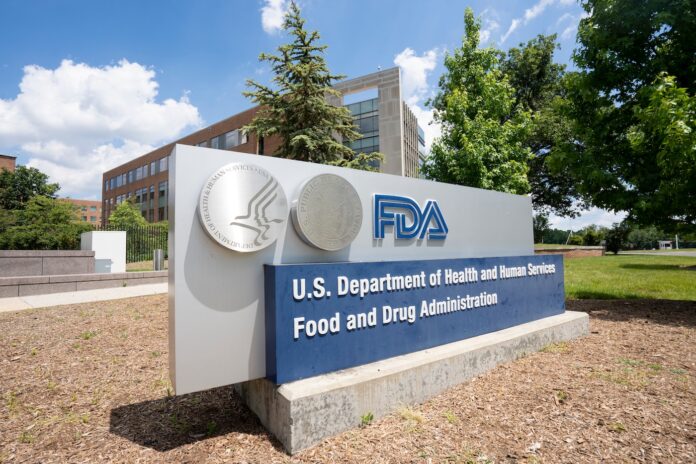SILVER SPRING, Md. – The federal government is cracking down on delta-8 edibles that resemble popular snack foods, according to letters two agencies sent to six manufacturers. Though the letters cite violations of federal law related specifically to copycat products, the warnings hint a broader crackdown on edibles containing the minor cannabinoid could be on the way.
The warning letters, sent by the U.S. Food and Drug Administration (FDA) and Federal Trade Commission (FTC), accused six companies—Delta Munchies, Dr. Smoke LLC, Exclusive Hemp Farms/Oshipt, Nikte’s Wholesale LLC, North Carolina Hemp Exchange LLC, and The Haunted Vapor Room—of unfair or deceptive marketing and violating the federal Food, Drug, and Cosmetic Act by incorporating an unapproved substance in products that could appeal to minors. Among the well-known brands mimicked by the infused products are Oreos, Jolly Rancher, Nerds, Pop Tarts, and Cheetos.
“Marketing edible THC products that can be easily mistaken by children for regular foods is reckless and illegal,” said Samuel Levine, director of the FTC’s Bureau of Consumer Protection. “Companies must ensure their products are marketed safely and responsibly, especially when it comes to protecting the well-being of children.”
Labeling alone may not be enough to demonstrate responsible edibles marketing practices, according to the warning letters.
“Children are at particular risk for mistakenly ingesting edible THC products imitating traditional foods because they are more likely to focus on similarities of product appearance and packaging, and less likely to notice or be able to comprehend labeling text,” the letters state.
In addition, according to FDA Principal Deputy Commissioner Janet Woodcock, MD, “Children are more vulnerable than adults to the effects of THC, with many who have been sickened and even hospitalized after eating ‘edibles’ containing it. Copycat food products containing delta-8 THC can be easily mistaken for popular foods that are appealing to children and can make it easy for a young child to ingest very high doses without realizing it.”
Of potentially broader impact, the warning letters also address the agencies’ concerns about the potential dangers of consuming delta-8 at any age. The FDA has not approved the psychoactive, hemp-derived (and therefore presumed legal) substance as an additive for human or animal foods or supplements. In each of the warning letters, the FDA cited issues related to “altered human foods” or food additives that require premarket approval based on data demonstrating safety. Any food additive that has not been FDA-approved for its intended use in food is deemed unsafe by the federal government. Based on the FDA’s current opinion of existing data about the hemp-derived substance, delta-8 may not have a path to approval.
“Some of the available data raise serious concerns about potential harm from delta-8 THC,” the warning letters state. “Our review of published scientific literature identified potential for adverse effects on the central nervous and cardiopulmonary systems. In addition, studies in animals have suggested that gestational exposure to delta-8 THC can interfere with neurodevelopment. Therefore, based on our review, the use of delta-8 THC in conventional food does not satisfy the criteria for GRAS [generally recognized as safe] status under [regulation] 21 CFR 170.30.”
In June, the FDA issued a warning about the consumption of delta-8 edibles based on more than 125 adverse incident reports from January 1, 2021, through May 31, 2022. Roughly eight percent of the reports mentioned a copycat snack-food product like the ones called out by the FDA and FTC’s most recent warning letters.
This is not the first time the FDA has warned marketers of delta-8 products about violating federal law. In May 2022, the agency sent warning letters to five companies it accused of illegally selling unapproved delta-8 THC products and failing to adequately label the packages.
“There are no FDA-approved drugs containing delta-8 THC,” the agency said at the time. “Any delta-8 THC product claiming to diagnose, cure, mitigate, treat, or prevent diseases is considered an unapproved new drug. The FDA has not evaluated whether these unapproved drug products are effective for the uses manufacturers claim, what an appropriate dose might be, how they could interact with FDA-approved drugs or other products, or whether they have dangerous side effects or other safety concerns.”
Delta-8 THC—often presented as an intoxicating alternative to delta-9 THC, which is federally illegal—is one of more than 100 cannabinoids produced by marijuana and hemp plants, but the substance does not occur naturally in significant amounts. Instead, delta-8 typically is manufactured from hemp-derived CBD. Hemp and its derivatives were legalized by the 2018 federal farm bill, as long as the plant and products contain less than 0.3 percent delta-9 THC by dry weight.













[…] or mixed with hard drugs including heroin, fentanyl, and methamphetamine. While the DEA has signaled a crackdown on popular delta-8 products with numerous warning letters, no substantive change or direct guidance has yet […]
[…] Cannabinoids synthesized from hemp have not-so-quietly moved from the shadows into a glaring multi-billion dollar market, but their safety and legal status have raised serious concerns within the federal government. […]
[…] the FDA and other federal agencies repeatedly have warned companies about making health claims associated with any cannabis- or hemp-derived product, many marketers […]
[…] product is by registering a design patent that protects the aesthetic appearance of a device. If another company markets or sells a knock-off product with aesthetic similarities to the patented product, the patent holder can sue for damages and to […]
[…] marketers come up with sleek, creative copy in just a few seconds. While the legal implications for trademarks and fair use of AI-produced or AI-manipulated content eventually will change the landscape for some of these […]
[…] like delta-8 THC have exploded in popularity in areas of the country without adult-use legislation, drawing ire from regulatory bodies while raking in $2 billion over the last two […]
[…] Feds Signal Delta-8 Edibles Crackdown in New Warnings […]